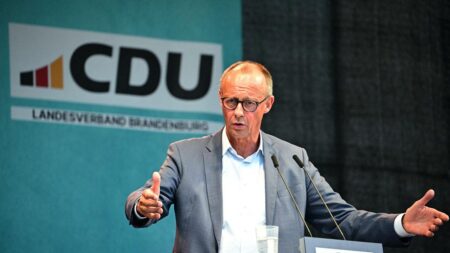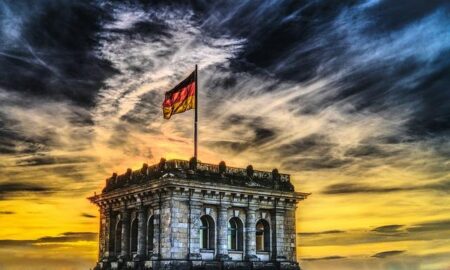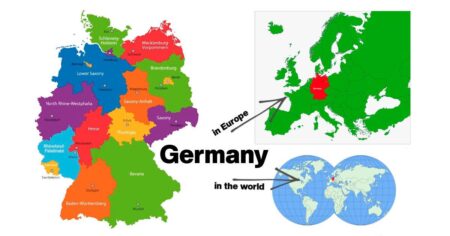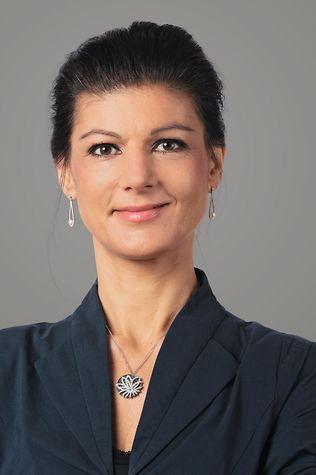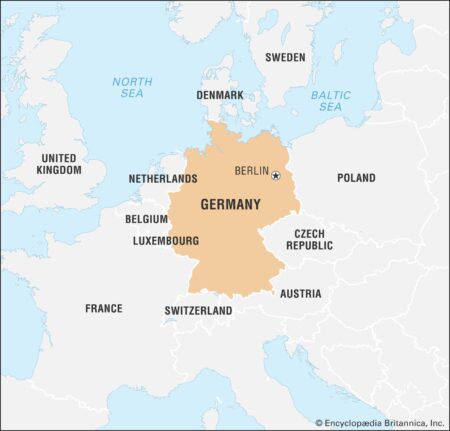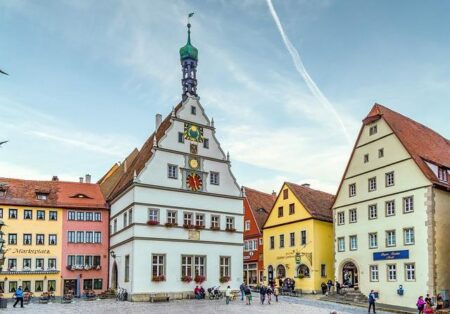Recent claims that the new German government has flown in Afghan migrants have been debunked. Official sources clarify that these individuals were part of evacuation efforts initiated under the previous administration, not a new policy initiative.
Browsing: Germany
Germany’s Rhineland is gearing up for its vibrant Carnival celebrations, but heightened security measures are in place to ensure public safety. Authorities are deploying additional personnel and monitoring events closely, aiming to balance festivity with precaution.
Germany‚Äôs chancellor-in-waiting emphasizes the need for “real” independence from US influence, advocating for a more autonomous foreign policy. As global dynamics shift, questions arise about the feasibility of this vision and its implications for transatlantic relations.
Germany’s recent election signals a significant shift in its political landscape, with major implications for the EU. Key takeaways include a coalition government that emphasizes climate action and social reforms, potentially altering Germany’s leadership role in Europe.
Friedrich Merz, a prominent figure within Germany’s conservative CDU party, is gaining traction as a leading candidate for Chancellor. With a focus on economic stability and traditional values, Merz’s leadership could reshape Germany‚Äôs political landscape.
In a recent address, Germany’s Friedrich Merz criticized former President Donald Trump’s influence on U.S. politics, expressing concerns over rising populism. As he attempts to forge a coalition, Merz highlights the need for stable transatlantic relations amid global challenges.
Germany’s far-right AfD and the Left party have secured sufficient seats to impede amendments to the country’s debt brake, a fiscal rule that limits public borrowing. This development highlights the ongoing political divisions impacting budgetary reforms in Germany.
The recent German election has exposed deep-seated divisions within the country, as parties grapple with issues like immigration and climate policy. Analysts warn that these rifts could redefine German politics and challenge coalition stability moving forward.
In a concerning indication of economic strain, the German Central Bank reported significant losses, highlighting challenges ahead for Europe’s largest economy. Analysts warn this trend may reflect deeper issues, raising alarms about Germany’s financial stability.
Sahra Wagenknecht, a prominent figure in German politics, has witnessed both meteoric rises and sharp declines. Once celebrated as a visionary leader of the left, her controversial stances and internal party conflicts have reshaped her trajectory, prompting discussions about the future of the political landscape in Germany.
In the latest polls ahead of Germany’s elections, CDU leader Friedrich Merz appears poised to become the next chancellor. Meanwhile, the far-right AfD is experiencing a notable surge, raising concerns about its potential influence on German politics.
In a significant shift, German conservatives emerged victorious in the latest elections, securing a decisive lead. Meanwhile, the far-right Alternative for Germany (AfD) achieved its best electoral performance to date, marking a notable rise in its influence.
In a striking turn of events, a far-right party in Germany has recorded unprecedented support in the recent elections, reflecting shifting political sentiments. Analysts are examining the implications for the nation’s political landscape and societal cohesion.
Germany’s new leader has announced plans to pursue greater independence from the United States, signaling a shift in foreign policy. This move aims to enhance national sovereignty and strengthen ties with other global partners in a changing geopolitical landscape.
In a significant political shift, Germany’s Friedrich Merz declared victory for his conservative party as exit polls indicated substantial gains for far-right factions. This outcome reflects a changing electoral landscape and raises questions about future governance.
In a significant electoral shift, German conservatives celebrated a substantial victory, while the far-right party achieved historic success. This outcome reflects growing support for nationalist sentiments, reshaping Germany’s political landscape.
Germany’s conservative party has secured victory in the latest elections, while the far-right Alternative for Germany (AfD) has surged to second place, according to exit polls. This shift signals a significant change in the nation’s political landscape.
In Germany, a new generation is shaping the far-right movement with brazen rhetoric and social media savvy. This youthful fervor is not only challenging traditional norms but also igniting debates about nationalism and identity in contemporary society.
Polls have opened in Germany for a pivotal election that is being closely monitored by European leaders and the US. With issues like economic stability and climate policy at stake, the outcome could significantly influence the continent’s future trajectory.
Germany’s political landscape has been shaken by sudden turbulence as shifting voter sentiments challenge established parties. A surge in populism and new coalitions are reshaping the electoral map, raising questions about the country’s future governance.



